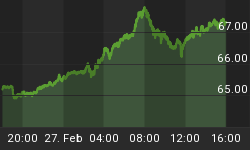The slew of weak data from across the Euro-zone this morning all-but guarantees that the European Central Bank (ECB) won't be making any more rate hikes in the second half of this year. The RBS/Markit flash composite PMI dropped from 49.3 in June to 47.8 in July, the lowest since November 2001 and clearly indicating a contracting economy. Most of the decline was concentrated in the manufacturing index, which slid from 49.2 to 47.5, while the services PMI slipped from 49.2 to 48.3.
In France, the data pointed to a stagnant economy across the board, with the composite PMI for July dropping to 47.0 (49.7 in June) as the manufacturing index fell to 47.3 (from 49.2) and the services index to 47.0 (from 50.1). Underlining the poor prospects for the Euro-zone's second-largest economy, the INSEE business confidence index for July dropped to 98 from 101 in June, its lowest level in three years. More worrisome, the general business outlook index - representing company heads' assessment of the overall climate - plunged to -34 from -15 the previous month.
Chart 1
In powerhouse Germany, the composite PMI weakened but remained in positive territory at 52.2 (53.0 in June), with the manufacturing index at 50.9 (down from 52.6) and the services PMI actually improving to 53.3 (52.1 in June). However, the index of new manufacturing orders dropped to 47.8, down from 54.4 in June - the fifth consecutive month of weaker orders and the lowest reading in over five years. More disconcerting was the Ifo business climate index, a survey of corporate sentiment and a good leading indicator for German economic growth. The overall climate index fell from 101.2 in June to 97.5 in July, the steepest monthly drop since September 2001. Firms' assessment of current conditions weakened from 108.3 to 105.7 while the expectations index came in at just 90.0, down from 94.6 the previous month. Germany's finance minister commented earlier this week that the economy likely contracted "considerably" in Q2 after growth of 1.5% in Q1. This may prove an exaggeration, and Germany still appears to be doing better than the rest of the Euro-zone, but clearly the economy is starting to soften.
Chart 2
Today also saw the release of our favorite Euro-zone leading indicator, the Belgian National Bank's (BNB) business confidence indicator. As we've noted before, thanks to Belgium's strong trade ties with its neighbors (about 80% of Belgium's manufacturing output is sold abroad, mostly to fellow EU members), the BNB's business confidence index is a reliable leading indicator - about six months out - for GDP growth in the Euro-zone as a whole. Again, the news is not good. The composite index dropped to -7.6 in July from -5.9 in June, driven by a sharp fall in the retail sales sub-component, which plunged to -12.5 (-6.8 in June).
Chart 3
Hitherto, we have seen plenty of negative data from Spain, the 'zone's fourth-largest economy, thanks to its housing market slump. Ireland has also been weakening rapidly. Now, the combination of high prices, a strong currency, and tight credit conditions is weighing on the likes of France and Germany. While one month of poor data does not a recession make, the trend clearly is downward - and that should be enough to stay the ECB's hand, even if consumer price inflation has not yet peaked.















